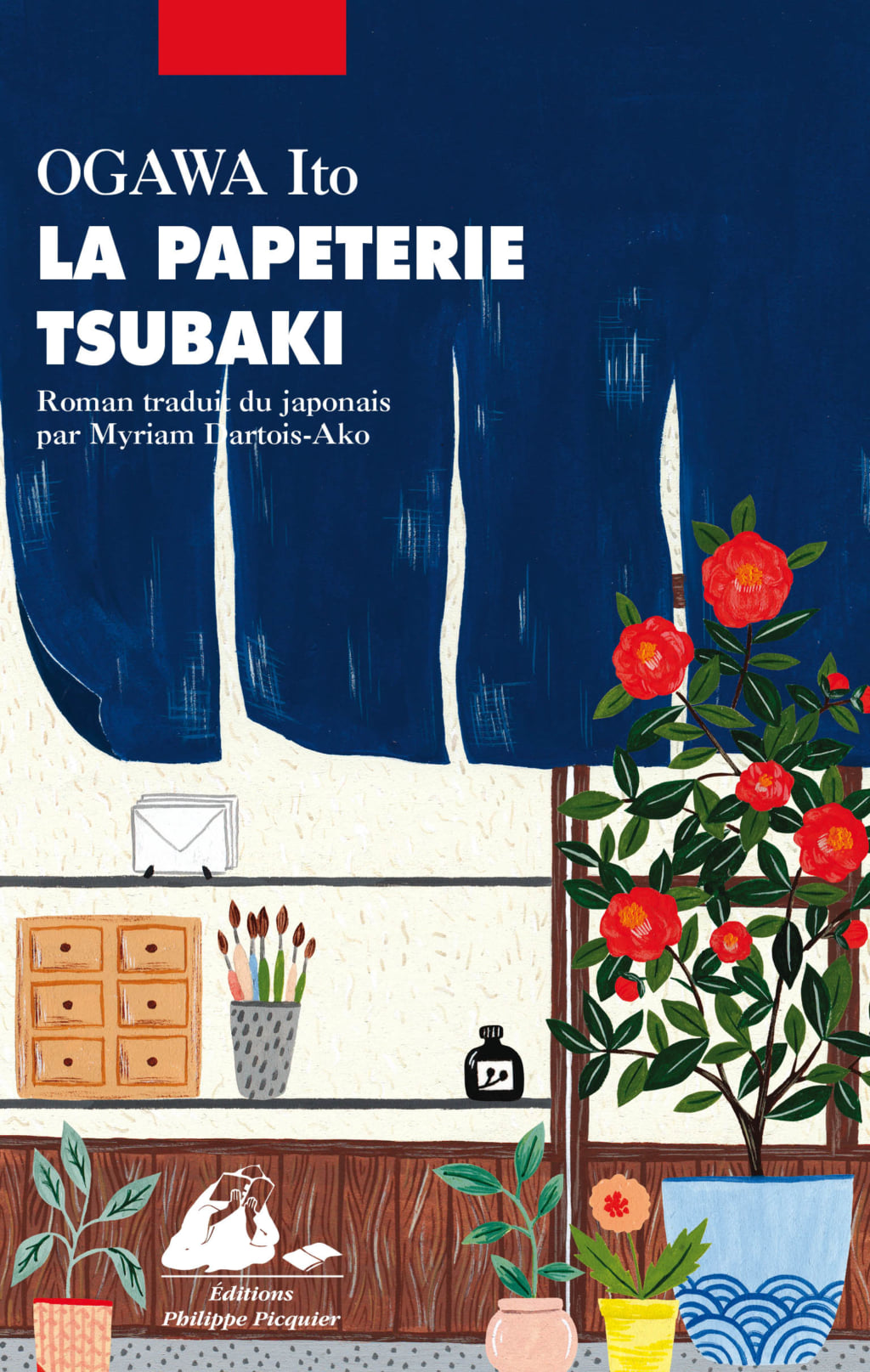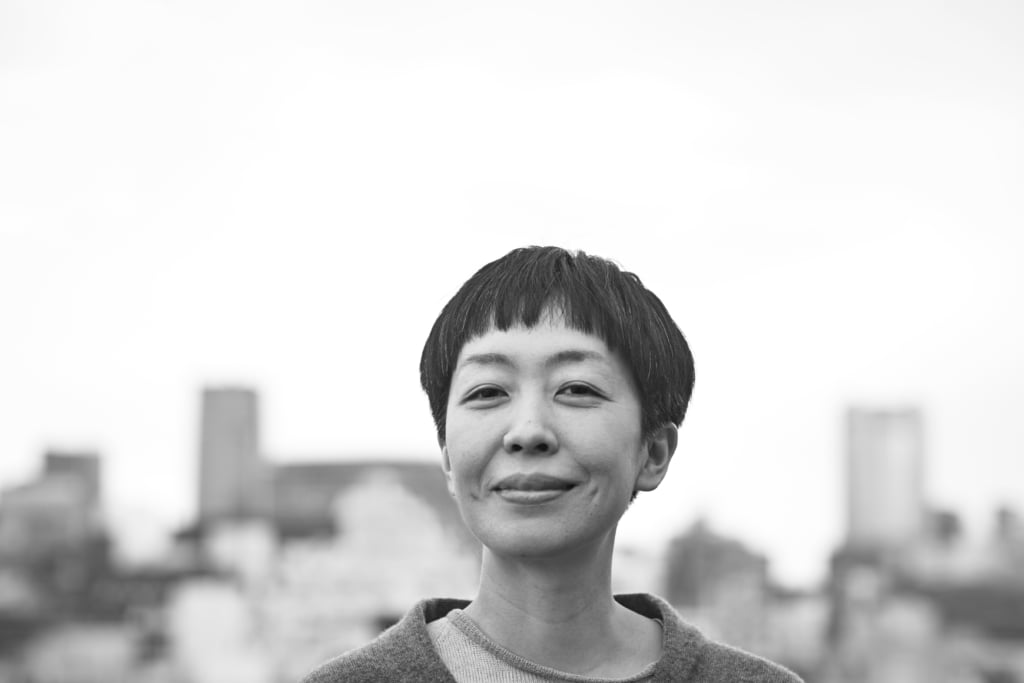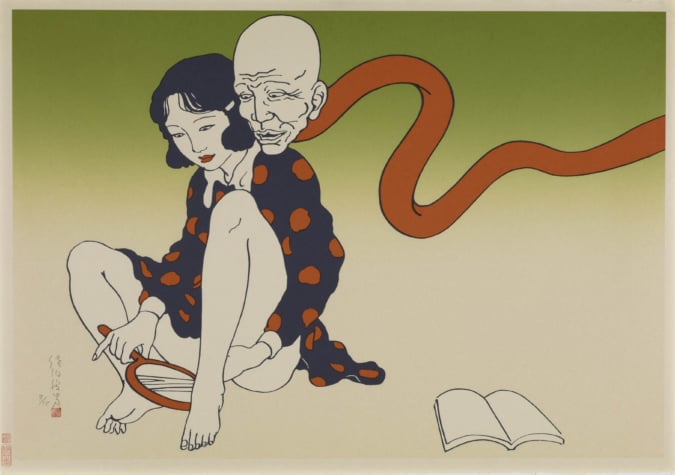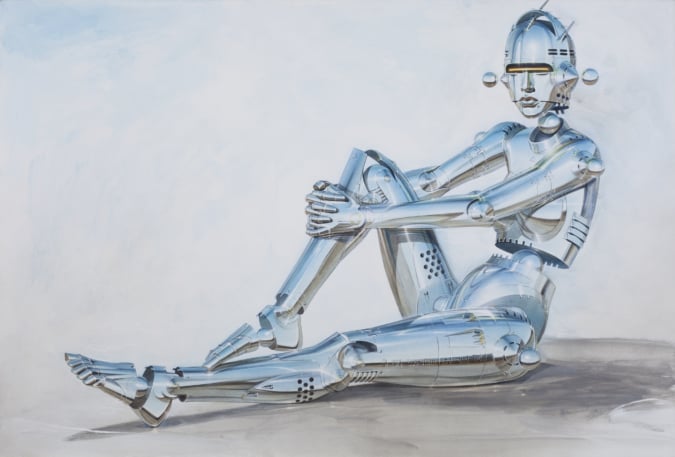Japanese Correspondence Explored in ‘Tsubaki Stationery Store’
Ito Ogawa gently narrates the everyday life of Hatoko, who returns to Kamakura to take over the family stationery shop and become a scribe.

© Éditions Picquier
Behind a seemingly simple tale—a 25-year-old woman who leaves Tokyo to return to the city where she grew up in order to take over the stationery shop her grandmother managed—lies a detailed observation of what constitutes Japanese society. Hatoko’s return to Kamakura is ultimately just a pretext to give an account of everything that goes on in the community in minute detail.
The story, almost all of which unfolds within the walls of the stationery shop in Kamakura, explores the codes of Japanese calligraphy as the heroine, Hatoko, is a scribe. However, it also analyses the human connections that form between the neighbours and the customers who come in and out of the shop, because the residents of Kamakura flock to ask the young woman for help in sending love letters, break-up letters, threatening letters, and death announcements. All of this is set to the rhythm of the passing seasons and their rituals and festivities, which are particularly celebrated in Japan.
Universal themes
Beyond what these letters reveal about the codes and pronounced hierarchy in Japanese society, Tsubaki Bunguten (‘Tsubaki Stationery Store’) also explores universal themes: the burden of transmission, the perpetuation of family values and the difficulty of returning to one’s childhood home, which could be considered as a failure.
Tsubaki Stationery Store explores much more than its back cover suggests. Following the success of this book, the author released a follow-up in 2020, The Republic of Happiness. Ito Ogawa’s first novel, The Restaurant of Love Regained, was a bestseller in Japan and was adapted for the cinema by director Mai Taminaga. In 2013, it was awarded the prix du Roman et Essai Gourmand Eugénie Brazier in France, which aims to promote the transmission of culinary heritage.
Tsubaki Bunguten (‘Tsubaki Stationery Store’) (2016) by Ito Ogawa, is a novel published by Gentosha (not currently available in English).

© Chiyoe Sugita
TRENDING
-
A House from the Taisho Era Reveals Its Secrets
While visiting an abandoned building, Hamish Campbell discovered photographs the owner had taken of the place in the 1920s.

-
The Taboo-Breaking Erotica of Toshio Saeki
The master of the 1970s Japanese avant-garde reimagined his most iconic artworks for a limited box set with silkscreen artist Fumie Taniyama.

-
With Meisa Fujishiro, Tokyo's Nudes Stand Tall
In the series 'Sketches of Tokyo', the photographer revisits the genre by bringing it face to face with the capital's architecture.

-
Masahisa Fukase's Family Portraits
In his series ‘Family’, the photographer compiles surprising photos in which he questions death, the inescapable.

-
Hajime Sorayama's Futuristic Eroticism
The illustrator is the pioneer for a form of hyperrealism that combines sensuality and technology and depicts sexualised robots.





